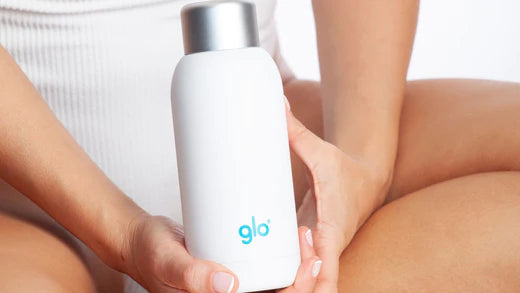Surely you have heard about hydrolyzed collagen and its benefits for the skin, but did you know that collagen can also help with cellulite?
Some supplements formulated with hydrolyzed collagen can improve skin firmness and elasticity. In this article we are going to explain why, and which ones would be the most helpful to treat cellulite.
One of the latest revolutions in nutricosmetics is the use of collagen as a remedy to reduce skin imperfections caused by cellulite. You may think that cellulite is only about fat, but it is not.
Most women suffer from what we know as 'orange peel skin' due to an unhealthy diet and a sedentary lifestyle. But there are other factors at stake. Hormones, genetics, and sometimes a decrease in tissue tonicity as we age, can all make our bodies prone to developing cellulite.
The forming of cellulite is a complex process where many factors are at work:
- fluid retention in the interstitial tissue
- worsening of the microcirculation at affected area
- thickening and hardening of adipocytes (fat nodules), which causes tissue congestion and makes the skin “bulge.”
- the loss of elasticity of connective tissue that adheres the skin with the muscles. As they receive less oxygen, they start pulling the skin inward, creating “dimples” on the surface. Since the connective tissue is made of collagen, maintaining its elasticity will greatly reduce the padded look on skin surface. Furthermore, because collagen is what keeps the skin firm, the loss of it will cause the skin to sag, making the uneven texture more visible.
Now you have a clearer idea of why hydrolyzed collagen can be a great helper to reducing cellulite, right?
Collagen is a protein that forms the tissue matrix and is abundantly present in our body. It is the tissue that maintains the firmness of our skin, leaving it healthy and plump. To work most efficiently, collagen needs vitamin C in order to be synthesized. This is why many anti-cellulite diets would include foods rich in vitamin C.
Over time, our body gradually slows down its production of collagen, which makes obtaining it from other sources necessary. From age 25, the natural production level of collagen starts to decrease, and this trend would steadily go up in the following years. You may start to feel and see noticeable changes inside of the body and on the skin, especially after the age of 40.
To compensate for this loss and reverse its effects, we should supplement our diet with hydrolyzed collagen. When we consume hydrolyzed collagen, the body digests it as if it’s been organically produced. And it will function just like the local collagen and forms fibers that lift the skin, leaving it firm and nourished, as well as strengthens the bones and cartilages.
The first step to reduce cellulite should be establishing a healthy lifestyle, which means to eat well, exercise, drink enough water, and consider taking dietary supplements that contain hydrolyzed collagen.
How does collagen help reduce cellulite?
In the case of cellulite and stretch marks, hydrolyzed collagen peptides help to restore the normal structure of the dermal and subcutaneous tissue, especially in the areas of legs and buttocks. Research has also shown that its bioavailability is much higher when ingested orally than when applied onto the skin as in the case of topical creams.
According to aesthetic experts, one of the best decisions to combat cellulite is to add a dietary supplement that contains hydrolyzed collagen of highest quality, with hyaluronic acid, to our diet, because this mixture contributes to the natural formation of collagen.
Collagen powder is a dietary product made of hydrolyzed collagen protein in the form of water-soluble powder. It is a highly bioavailable nutrient obtained from natural raw materials without adding other chemical ingredients. Collagen protein is a large protein, which makes it difficult to be digested and absorbed. But the hydrolyzing process breaks it down into small peptides, and it becomes biosoluble and bioefficient--easily absorbable by the human body.
Are Collagen and Collagen Peptides the Same Thing?
They are not the same. Most supplements are formulated with hydrolyzed collagen (also known as collagen peptides), which means the collagen has been broken down for easy absorption. Collagen peptides are bioactive and can directly reach tissues in skin, cartilage, bone and hair.
Collagen is naturally present in the body and consists of a unique combination of amino acids, some of which are linked together by very stable bonds. These bonds resist degradation when passing through the digestive system. Therefore, when collagen peptides are ingested orally, the small bioactive peptides, along with free amino acids, can pass from the intestine into the bloodstream. There, resisting further degradation, the peptides would eventually reach connective tissues intact.
Type I and Type II collagen—which one is better for cellulite?
There are different types of collagens, depending on what it is best for—may that be for the joints, the skin, or the hair.
Type I
Type I collagen makes up 90% of the skin, hair, nails, organs, bones and ligaments. This type of collagen is the best when it comes to preventing wrinkles and other signs of aging.
Type II
Type II forms the cartilages. Specialists recommend consuming this type of collagen if you are experiencing cartilage damages. It is usually formulated with magnesium.
Therefore, for the purpose of improving the skin condition, specifically preventing skin flaccidity and fighting cellulite, we should choose Type I marine collagen peptides.
How to choose between bovine, porcine, and marine collagen?
If you are not allergic to fish or shellfish, choose marine collagen, because it is more bioefficient, meaning that it gets better absorbed by the human body.
How to choose collagen of the highest quality?
The brand of collagen matters, so look closely at the ingredient list and choose one that uses a registered brand. A reliable brand should guarantee the quality of their products since the origin, during the process, until its formulation as an ingredient to be used in nutricosmetics. Its recommended dose and corresponding effectiveness should be backed up by worldwide clinical trials and research. Two internationally leading collagen brands are Peptan and Verisol.
Is taking only collagen enough or is it better to opt for products formulated with other active ingredients?
It is important to make sure a sufficient daily dose (which should include 5-10g of collagen) and that the formula is enriched with other ingredients such as vitamin C (helps to stimulate collagen production), silicon (another key player in the formation of collagen), and hyaluronic acid, for example. There are formulations that go even further, including ingredients such as the DMAE, which helps to lift and firm the skin.
If you are concerned about cellulite and saggy skin, Glo has developed Skin910 Firming & Lifting Collagen just for this. Formulated using only natural active ingredients, Skin910 enhances its skin-lifting effect with a high dose of DMAE—a luxury ingredient that has powerful tightening properties. It is manufactured using a nonchemical process, without adding any artificial ingredient.
What ingredients a high-quality collagen product should not include?
It must not include any ingredient that has undergone a chemical change. It is very important to read the ingredient list and avoid collagens that contain chemical ingredients in their formulas, and they won’t provide any health benefit and may even be harmful. For example, keep a lookout for--
- Acesulfame K: it is used to improve flavor. It is a chemical substitute for sugar but without calories. However, there are studies indicating that it may be carcinogenic.
- Maltrodextrina: it is commonly used in formulas and serves to fill in the collagen, increasing its quantity without adding any benefit. This allows the manufacturer to lower the price at the cost of compromising product quality.
- Aerosil: it is a thickening agent that facilitates the mass production of food supplements.
- Added sugars, artificial flavors, artificial preservatives...
The recommended daily intake is 5-10 grams of high-quality hydrolyzed collagen. You can mix it with water, juices, non-dairy milk... Though it should never replace a varied and balanced diet, it is important to incorporate it into your diet in order to maintain the body and skin at their peak condition.
In conclusion, taking type I marine collagen peptide supplements is a good, nay, great idea for people wanting to get rid of cellulite and saggy skin. Haven't you started yet? Start taking care of yourself from the inside!
Other articles that you might be interested in:



















